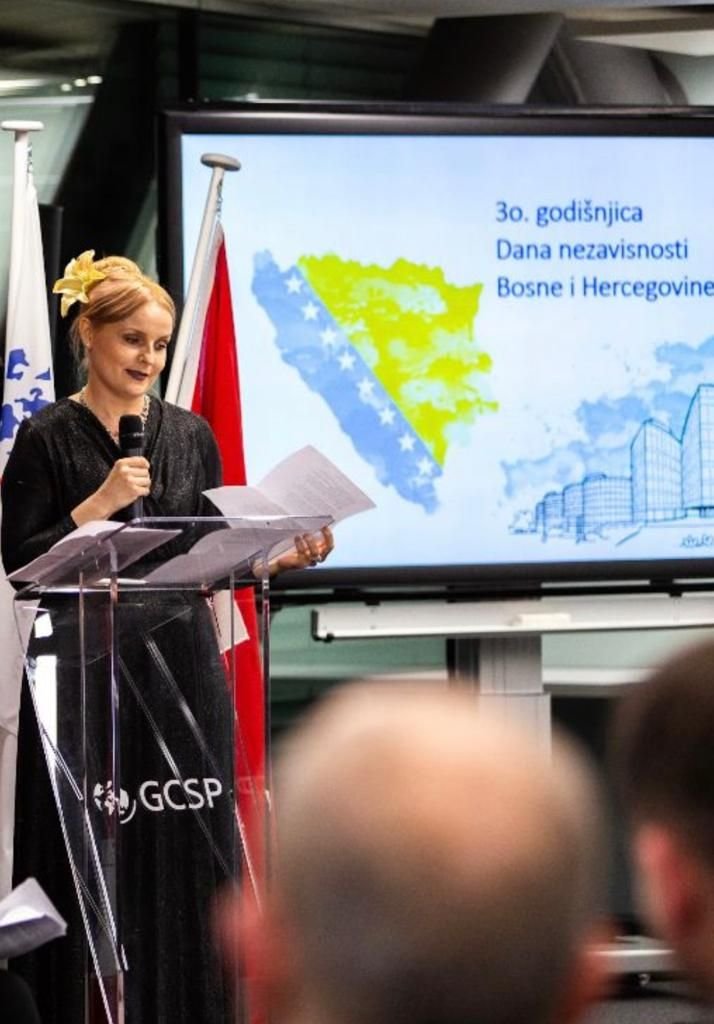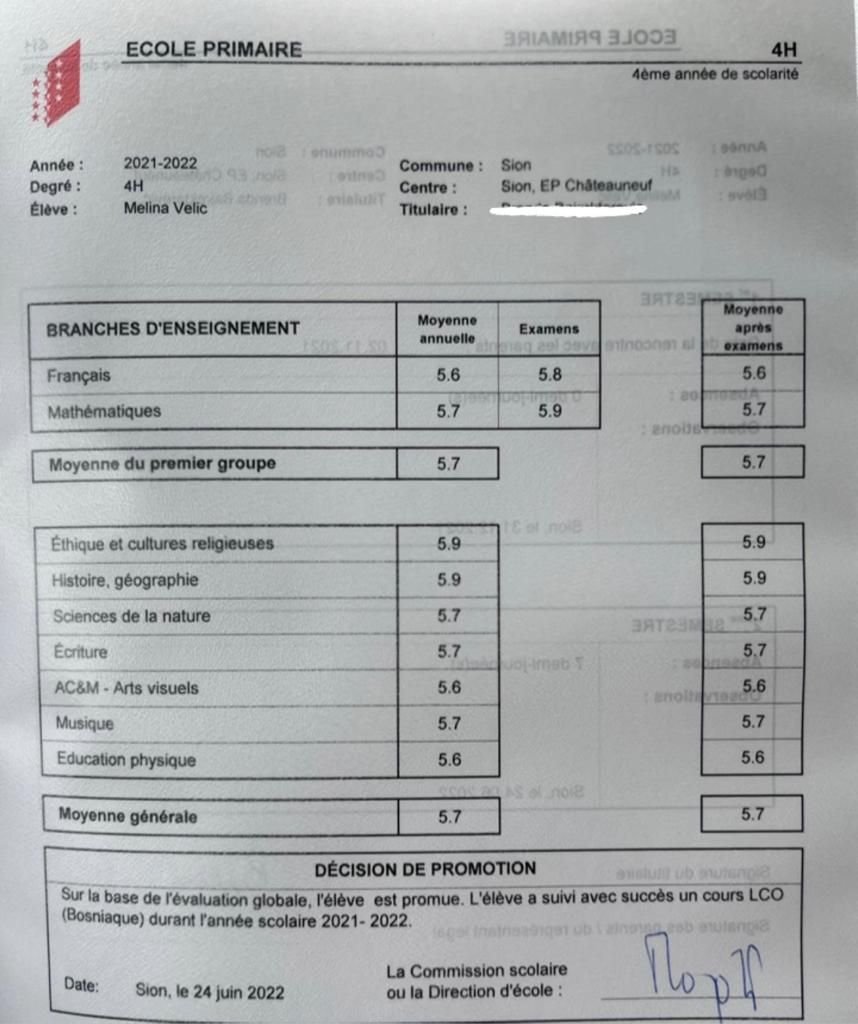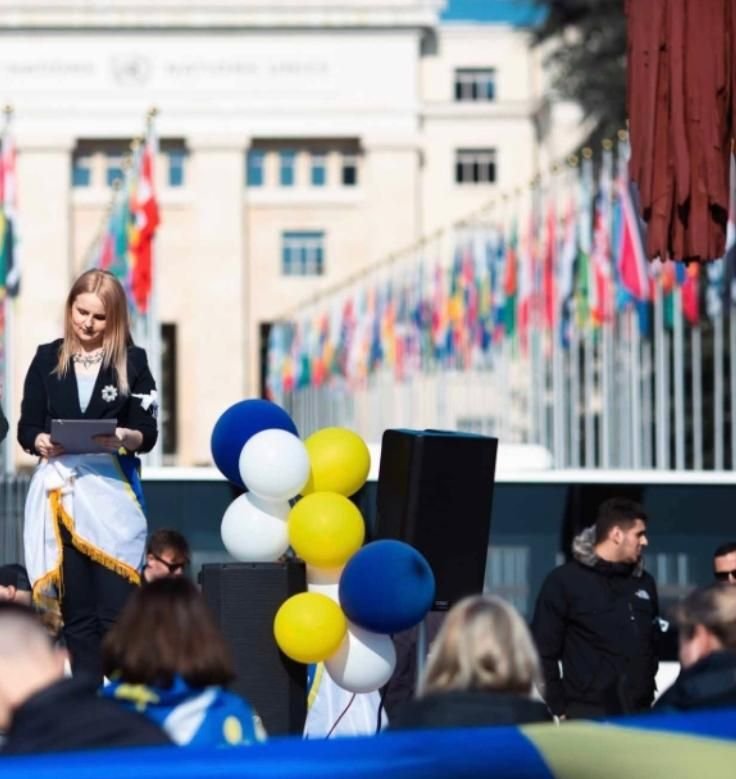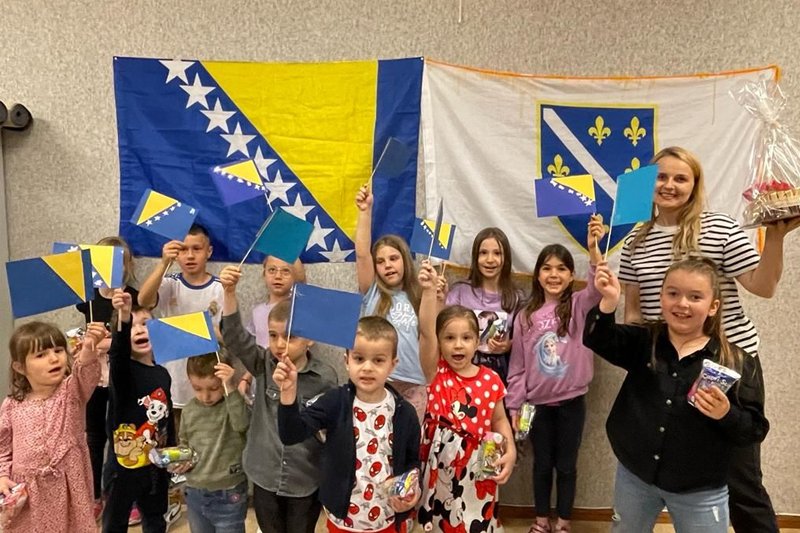Sedina Delić – Tanović: I dreamed about the recognition of the Bosnian language in Switzerland since I was a little girl
“I was 5 years old when I arrived in Switzerland, on a very cold 24th December 1994. I lost my father, my home, and even my country because I was without a national passport as a political refugee. The war was still raging in BiH. We experienced the fall of Srebrenica through EuroNews from the refugee center. I remember the TV was always on. We lived in two refugee centers before settling in Zion, where I have lived since 1996.
New country, new language, and finally peace! I was very impressed with the peace! No more running, no more shell sounds, no more sirens. Despite this, I dreamed about all this for several years. I guess it's called post-traumatic stress disorder.
I couldn't wait to go to school where I was welcomed with a lot of empathy and learning French was quite fast. My childhood was divided into two parts, before and after the war. My mom arrived in Switzerland with a borrowed 50 CHF in her pocket. She was a widow at the age of 29, with three small children and alone in the world. My first years were a mixture of emotions divided between the traumas of this war and the possibility of a new life that was offered to us. I still felt that I was a little different because I was aware that war was not a normal thing. But, as I quickly integrated myself, I felt good and even in my place. Sion remains forever my city, the one that gave me peace and security."

This is how Sedina Delić - Tanović answered our question, "What do you remember about your first years in the diaspora?" since she left Bosnia and Herzegovina due to the unfortunate circumstances of the war in the 1990s. In the beginning, she maintained contact with Bosnia and Herzegovina mainly through the Red Cross mail, and later also by telephone.
These first contacts were always painful. When my mother decided to return to BiH in 1997, I was very scared and begged us not to go! I was afraid we would be killed. However, the summer of 1997 was the most beautiful of my childhood! My children's eyes did not see the consequences of war, but only the beauty and deep kindness of people. I fell in love with my country and my people. I loved her so much that I understood and accepted that my father gave his life for her, for her people, and for us.
This first return experience was a strong anchor! Since then, we've been coming back as soon as we get the chance. For me, BiH represents my father, my paternal heritage. I love all the corners of our country, all the rivers and mountains, all the cities and all the villages. My love for Bosnia and Herzegovina has only grown since then."
As Sedina says, her mother always spoke Bosnian at home, taught them the language, and corrected them when they made mistakes. Music also helped a lot to keep the relationship going. Sedina liked growing up between these two countries and cultures, Bosnia and Herzegovina and Switzerland. In each of them, she could take what she considered positive. As she says, she loved going to school, but she lacked a lot of information that would complete her identity.
"I wanted to get to know the language, history, and culture of my first country better, but we didn't have any association. To make up for it, a young imam Ibrahim came from Geneva every Sunday and taught us our history and our religion. He was a true light and inspiration. He made me want to learn even more. He was the first connection between my two countries. He taught me that my identity is not limited to just one thing. I am very lucky that I was always surrounded by good people, thanks to them I forgot the bad. Later, our singers were guests at various events. These were opportunities for me to meet other Bosnians and Herzegovina in Switzerland. Over time, cultural associations developed more and more."
Today, Sedina is the representative of foreign communities in the city of Sion, the president of Bosnia and Herzegovina. association, member of the committee of the White Ribbon Commission, and member of the "Echo from Bosnia" team.
Bosnian language in Swiss schools
LCO (Langue et Culture d'Origine) teaching the language and culture of origin, originated in the 1960s and 1970s in Switzerland, after large waves of Italian and Spanish immigration. These are educational structures organized by embassies of countries or associations. Through their content focused on learning the language of origin, but also on the cultural heritage related to this language, LCO courses are places that offer an ideal territory for the transition between family language practice and school language practice. Today, at a time when interculturality and linguistic diversity are celebrated as key values of the 21st-century school, LCO courses represent dream structures for implementation in schools of the valorization of multilingual speech.
LCO courses value students' mother tongue, allow them to develop skills useful for acquiring other languages, and are important for building their identity. Classes are mostly held in the classrooms of the schools that the children attend. As Sedina says, for now, these courses are held in Zurich, Neuchâtel, and Sion.
Sedina points out that the canton of Valais/Wallis tried several times to get in touch with our ambassadors to achieve cooperation and develop this project, but without success.
This year, the competent authorities decided to reward ten years of hard work and commitment and agreed to recognize us as well as other countries that have many years of experience. This act made it possible for children to have the Bosnian language written in their school books at the end of the school year.

Association Sion BiH is involved in a cantonal project with a higher pedagogical school for the development of LCO. In the coming period, representatives of the Association will hold a meeting with teachers of Italian, Spanish, and Portuguese languages, to exchange ideas and experiences, all to create a catalog of pedagogical activities that will be presented and proposed to all other communities.

Sedina points out that her personal goal is to introduce the subject of the history of Bosnia and Herzegovina into the school curriculum in the coming period so that new generations can learn about the breakup of Yugoslavia, which culminated in genocide.
Sedina also states that children who are originally from Bosnia and Herzegovina and live in Switzerland maintain their ties with their homeland through regular trips and family visits. However, she believes that in the future there should be even more exchanges to discover Bosnia and Herzegovina in its entirety, she believes that school exchanges between the two countries should be promoted, experiences exchanged and projects of all kinds built together.
Become a member of our network!
Note: Copying parts or the entire text is allowed with the obligatory citation of the source.

